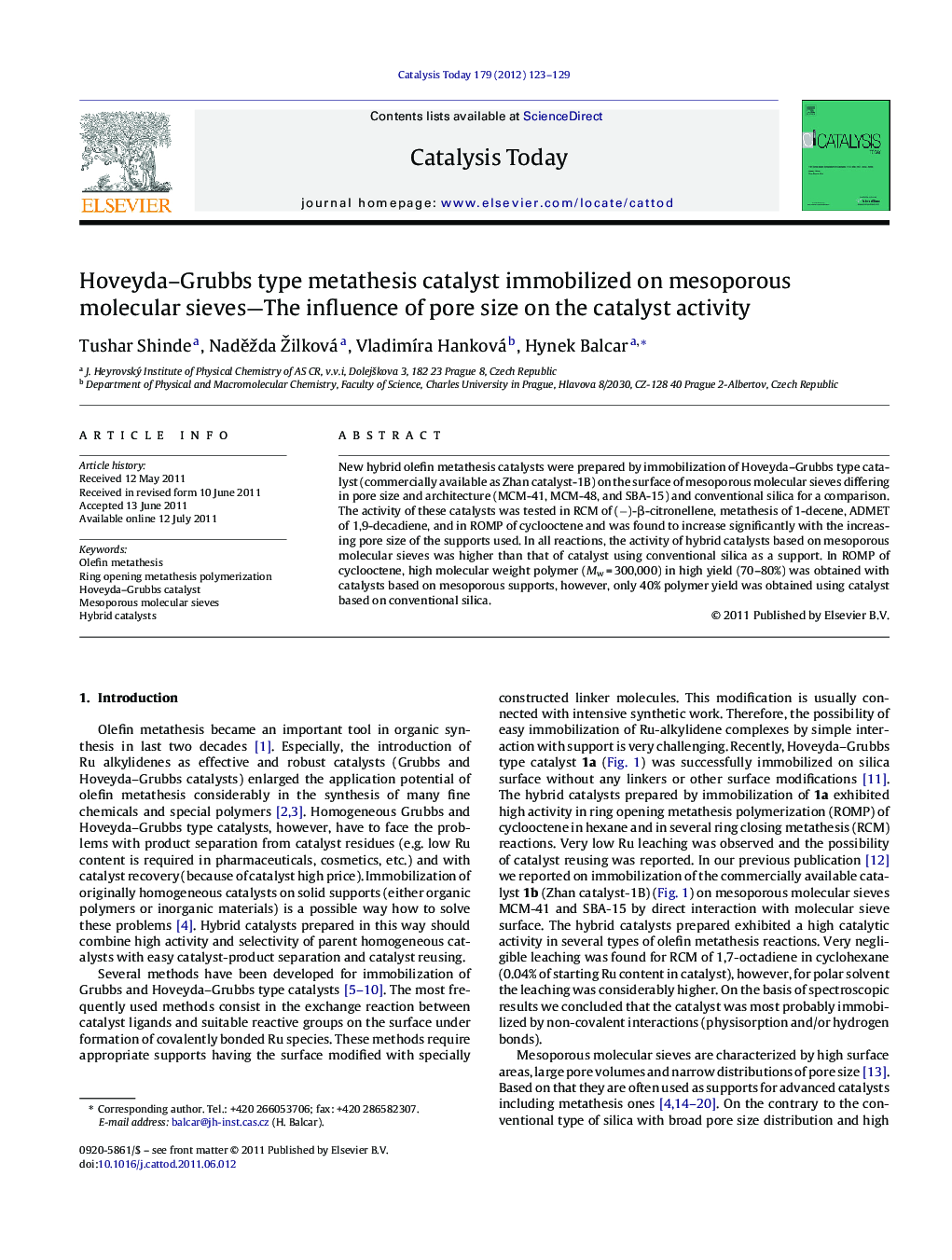| Article ID | Journal | Published Year | Pages | File Type |
|---|---|---|---|---|
| 55621 | Catalysis Today | 2012 | 7 Pages |
New hybrid olefin metathesis catalysts were prepared by immobilization of Hoveyda–Grubbs type catalyst (commercially available as Zhan catalyst-1B) on the surface of mesoporous molecular sieves differing in pore size and architecture (MCM-41, MCM-48, and SBA-15) and conventional silica for a comparison. The activity of these catalysts was tested in RCM of (−)-β-citronellene, metathesis of 1-decene, ADMET of 1,9-decadiene, and in ROMP of cyclooctene and was found to increase significantly with the increasing pore size of the supports used. In all reactions, the activity of hybrid catalysts based on mesoporous molecular sieves was higher than that of catalyst using conventional silica as a support. In ROMP of cyclooctene, high molecular weight polymer (Mw = 300,000) in high yield (70–80%) was obtained with catalysts based on mesoporous supports, however, only 40% polymer yield was obtained using catalyst based on conventional silica.
Graphical abstractIn metathesis of citronellene, 1-decene, 1,9-decadiene, and cyclooctene the activity of hybrid catalysts using mesoporous molecular sieves as supports was found to increase with increasing pore size of support.Figure optionsDownload full-size imageDownload high-quality image (106 K)Download as PowerPoint slideHighlights•Hybrid olefin metathesis catalysts were prepared by immobilization of Hoveyda–Grubbs type catalyst on mesoporous molecular sieves supports. •Catalyst activity in metathesis of citronellene, 1-decene, and 1,9-decadiene increased with increasing pore size of supports. • ROMP of cyclooctene delivered high molecular weight polymers in high yields using catalysts on mesoporous supports.
